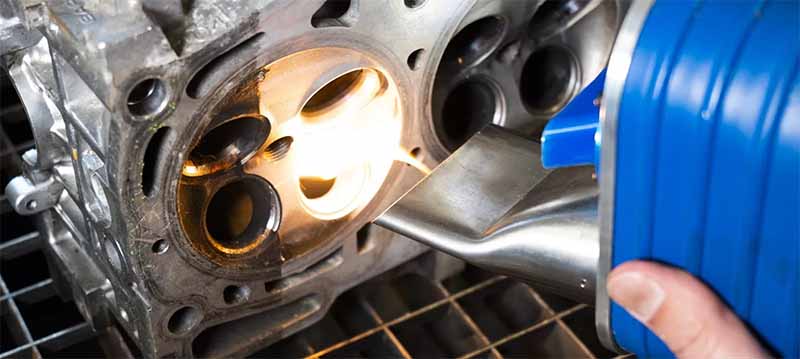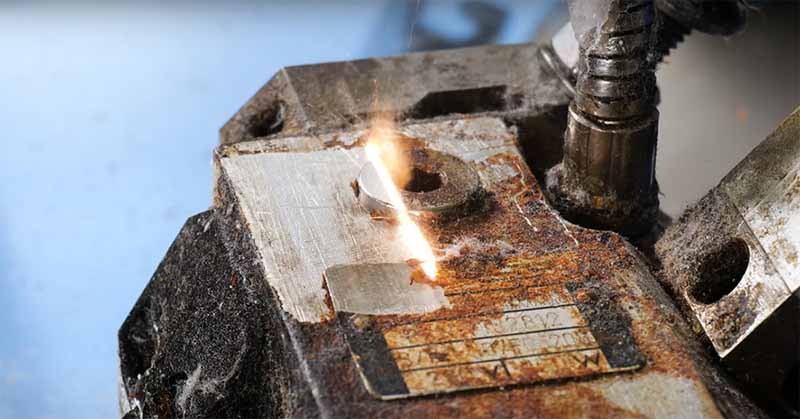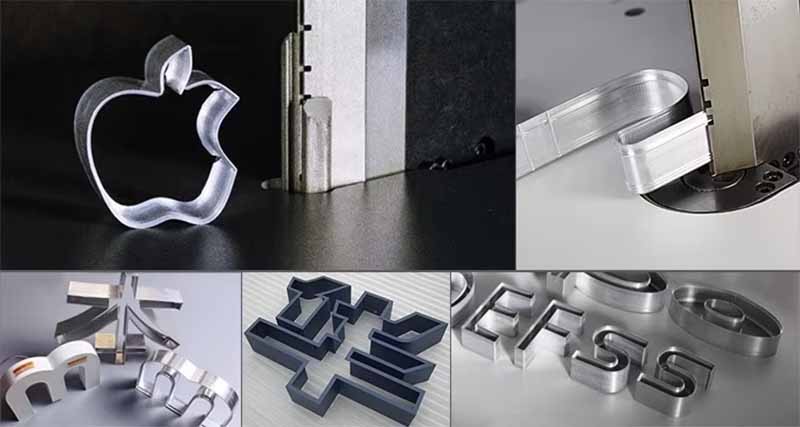In the electronics industry, precision and reliability are critical, especially when it comes to product identification and traceability. Laser marking on electronics has emerged as a preferred solution, offering unparalleled accuracy and durability.
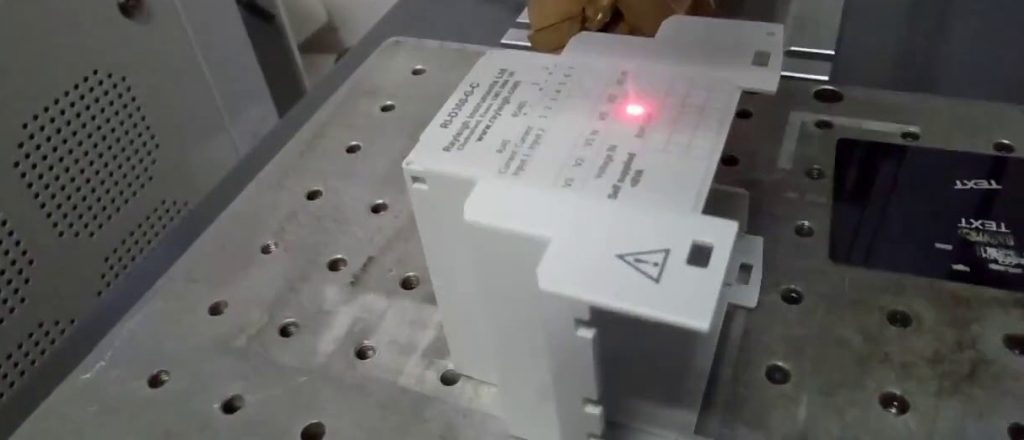
Plastic housings are vital in electronic products due to their insulation, durability, and stability, widely used to protect components and ensure reliability. Their surfaces often display essential information like logos, specifications, production dates, and usage instructions to meet user and regulatory requirements.
Laser marking provides a fast, non-contact solution with unmatched durability, automation, and flexibility. It ensures permanent markings, cost efficiency, precision, and versatility.
How Does Laser Marking Work?
Laser marking machines use a high-energy-density laser beam to irradiate specific areas on a material’s surface, enabling precise and permanent markings. The principle relies on the interaction between the laser and the material: when the focused laser beam contacts the surface, it causes instantaneous vaporization, melting, or chemical changes (such as oxidation) in the material, leaving a permanent mark.
This process is directed by an advanced computer control system, which governs the movement of scanning motors and lens along the X and Y axes. This ensures the laser beam follows a predefined path with precision, creating clear, high-quality text or patterns on the target object.
Laser Source
Laser marking machines come in various types:
Fiber Laser Marking Machine: Suitable for metals and some non-metal materials, it offers high energy conversion efficiency, a small spot size, and is ideal for precision marking.
CO2 Laser Marking Machine: Commonly used for non-metal materials like wood, paper, and glass, it is particularly effective for larger marking tasks.
UV Laser Marking Machine: Known for its ability to perform cold processing without affecting the properties of plastic materials, it is perfect for heat-sensitive plastic parts. Additionally, UV lasers produce finer marks, making them ideal for applications requiring high-quality visual results.
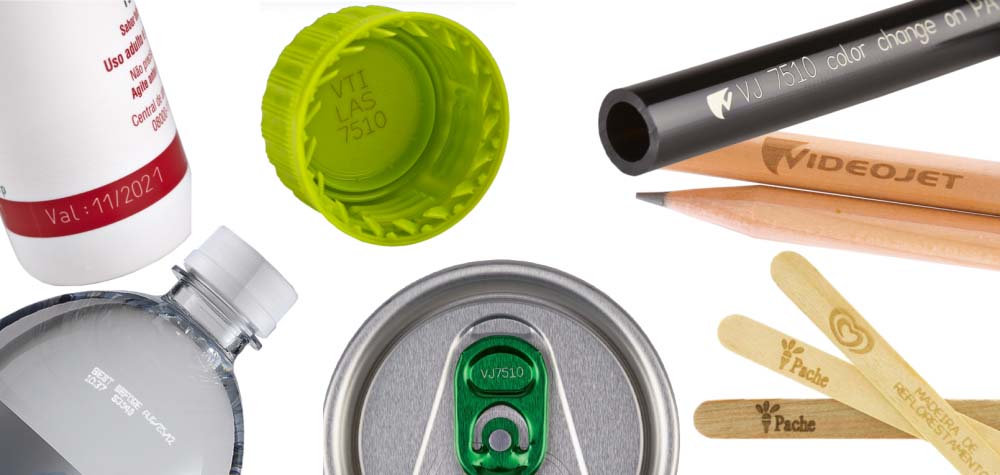
Can You Laser Mark Plastic?
Yes, plastic can be laser marked effectively. Laser marking is a precise, efficient, and durable method commonly used for marking plastic electronics housing.
Common plastic materials (such as PET, PE, PP, PVC, etc.) utilize several common marking techniques, including:
Printing or Inkjet Coding
- Environmental and Product Contamination: Printing or inkjet coding applies markings to product surfaces using chemicals that are easily dissolved or volatilized. This can lead to product contamination and may have adverse effects on the environment.
- Poor Durability: Ink-based text or graphics are prone to wear, especially under humid conditions, which can blur the markings, reducing brand recognition and negatively affecting user experience.
Injection Molding
- Low Visibility: When text or graphics blend with the product’s base color, the lack of contrast makes them hard to distinguish.
- High Cost and Limited Flexibility: Mold production is expensive, and each mold is fixed to a specific design, preventing customization or variable printing. This significantly limits flexibility and application range.
Laser Marking
Laser marking uses heat processing by focusing a laser beam on a very small area, delivering highly concentrated energy to alter the surface properties of the material and create a permanent mark. Compared to traditional methods, laser marking offers higher precision, longer-lasting results, and better environmental performance. Additionally, laser marking allows easy file importation to change the marking content as needed, offering highly flexible, responsive solutions for manufacturing needs change and mass production applications, making it an ideal choice for electronics marking solutions.
Advantages of Laser Marking Plastic Electronics Housing
High Precision and Clarity: Laser marking technology enables extremely fine processing, creating highly clear patterns and text even on small plastic surfaces.
Non-contact Processing: Since laser marking uses light energy instead of mechanical force, it does not apply physical pressure or cause stress damage to the product, which is crucial for maintaining the structural integrity and functionality of electronic products.
Permanent Marking: Laser marking alters the surface properties of the material, ensuring that the marks are highly durable and resistant to wear, chemical corrosion, and fading over time.
High-contrast marking: Laser marking on plastic can create high-contrast marks on plastics of any color, ensuring clear and legible markings.
Efficiency and Automation: Laser marking systems are known for their fast working speed, making them ideal for mass production of small electronic products. They increase throughput and help move manufacturing processes toward automation, reducing labor and associated costs.
Flexibility: Laser marking systems are typically equipped with advanced software that supports easy import of design files in various formats and allows for adjustments to marking content and size. This flexibility caters to diverse for customization and requirements change.
Eco-friendly and Pollution-free: The laser marking process does not involve inks or other chemicals, making it a clean and environmentally friendly method of marking.
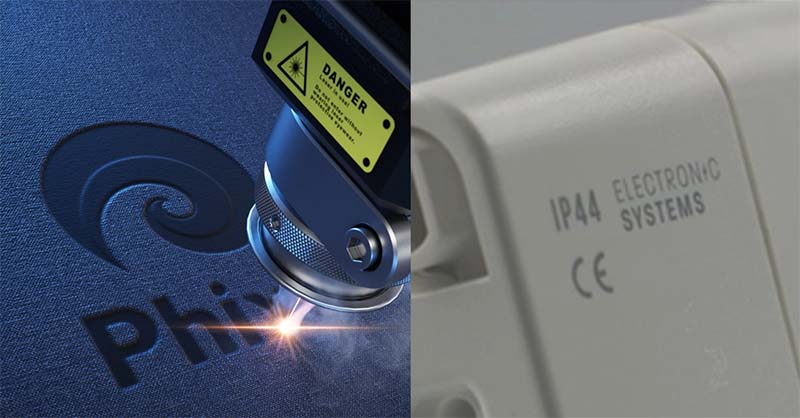
What Plastics are Suitable for Laser Marking?
Laser marking is widely used in the plastic industry, especially for electronic products, offering efficient and precise marking solutions for various plastic materials. It is suitable for most plastics, including:
Thermoplastics:
Polyethylene (PE)
Polypropylene (PP)
Polyvinyl Chloride (PVC)
Polystyrene (PS)
Acrylonitrile Butadiene Styrene (ABS)
Polymethyl Methacrylate (PMMA)
Polyamide (PA)
Polycarbonate (PC)
Thermosetting Plastics:
Phenolic Resins (PF)
Amino Plastics
Epoxy Resins (EP)
Unsaturated Polyester Resins (UP)
These plastics respond well to laser marking due to their ability to undergo color changes, foaming, or ablation when exposed to a focused laser beam, allowing for clear, permanent, and high-contrast marks.
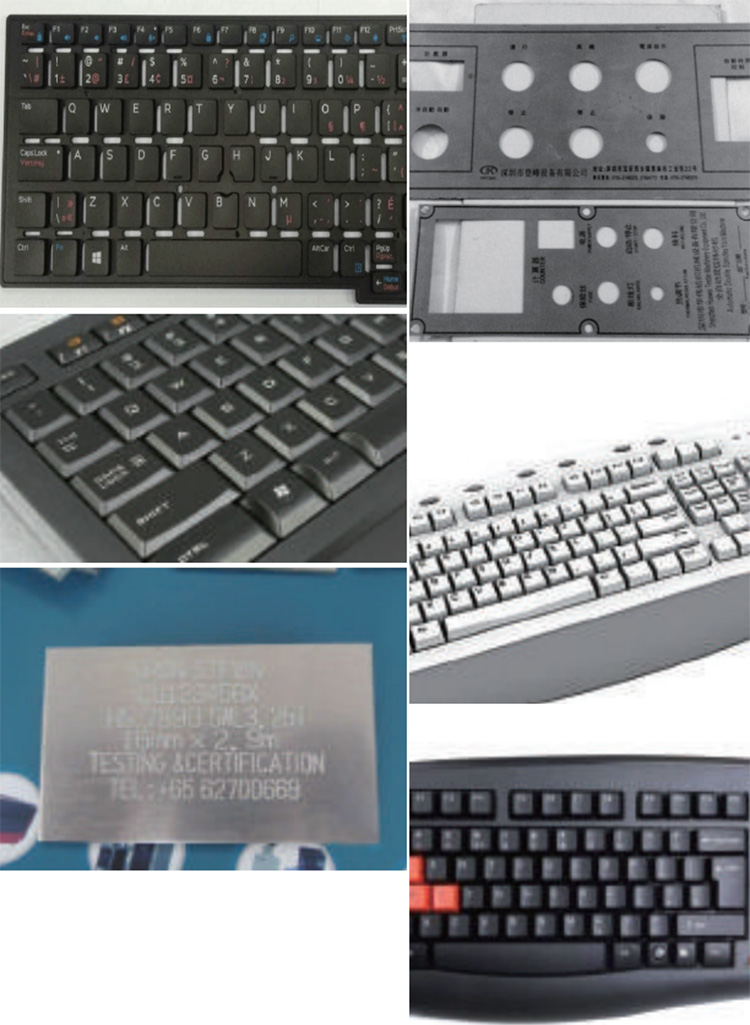
Application: Laser Marking Machines for Electronic Components
Laser marking on keyboard keys offers high precision, excellent wear resistance, and permanent marks. It can quickly and efficiently create clear, delicate, and durable characters or designs on various materials, making it ideal for mass production. The process is environmentally friendly and consumable-free.
Laser Marking for Electronic Enclosures
Laser marking is well-suited for marking the housings and internal components of devices like smartphones, computers, and other small electronics. It delivers precise, durable markings for serial numbers, logos, instructions, and other essential details, ensuring easy recognition and permanent markers will not wear off while maintaining a professional and attractive appearance.
Packaging Identification
Laser marking adds key information such as brand logos, model details, production dates, expiration dates, and batch numbers to plastic packaging for electronic products.
Printed Circuit Board
Laser marking machines produce highly precise and clear markings on circuit boards, including product specifications, manufacturing dates, serial numbers, barcodes, and QR codes. This non-contact marking method ensures no physical damage to sensitive circuits, preserving their functionality.
Electronic Components
Laser marking machines excel in handling small and precise electronic components such as chips, resistors, and capacitors, creating high-precision, permanent marks on their surfaces. These marks are not only clear and detailed but also facilitate accurate identification and assembly during production, significantly enhancing product quality and stability.
Displays
Laser markers can engrave various texts, logos, and patterns on display surfaces, such as product specifications, manufacturing dates, and brand logos. With exceptional fine marking capabilities, this process ensures information is durable and easy to read, while also significantly enhancing the product’s aesthetics and added value.
Online Flying Laser Marking
Online flying laser marking integrates laser marking machines with production lines to enable marking on moving products, significantly enhancing production efficiency. This system is particularly suitable for high-volume, uniform products such as adapters, wires, cables, and tubular molded or extruded items. With the support of a vision recognition system, it ensures precise marking without the need for position adjustments, making the process highly efficient and accurate.
UV Laser Marking Machine for Electronic Case & Components
The UV laser marking machine series is a high-precision marking solution designed for premium electronic products. It is widely used in processing smartphones, tablets, power adapters, digital electronics, electronic components, and smart wearable devices. Typical applications include fine marking on plastic electronics and achieving high-contrast black and white markings on surfaces.

Features:
Exceptional Marking Quality
Equipped with a self-developed digital high-speed scanning galvanometer, the machine ensures smooth and clear edges for precise and flawless marking.
Superior Beam Quality
With an extremely small focused laser spot, it delivers ultra-fine and high-definition marking results, meeting the most demanding requirements.
Minimal Thermal Impact
By precisely controlling thermal effects, the machine prevents deformation of plastic surfaces and damage to coatings. It guarantees uniform color distribution and achieves optimal marking aesthetics.
Choose DPLASER Laser Marking Machine for Electronics
Customized Solutions to Meet Unique Needs
We offer a wide range of standard cabinet options along with full customization services to ensure that every laser marking system is tailored to your specific requirements. Whether for large-scale production or small-batch customization, we deliver the most suitable solution for our customers.
Exceptional Marking Quality with Long-Lasting Clarity
Equipped with state-of-the-art laser technology and meticulous process control, our machines ensure every marking operation achieves unparalleled precision and clarity.
Expert Team and Robust Supply Chain for Maximum Value
With a seasoned team of laser technology engineers and strong factory support, we effectively manage costs to provide you with high-performance laser marking equipment at a competitive price. From consultation to after-sales support, we are with you every step of the way, ensuring a professional experience that exceeds expectations.
The Bottom Line
Laser marking machines for electronic components deliver high-quality, permanent markings on various plastic materials, including ABS, polycarbonate, and nylon. Choose DPLASER laser marker ensures durable, precise markings and high quality marking requirements, making it an ideal choice for industries such as automotive, medical devices, and electronics. For tailored laser marking solutions on any material, feel free to consult our online laser engineers—we’re here to provide free sample testing to meet your needs.
